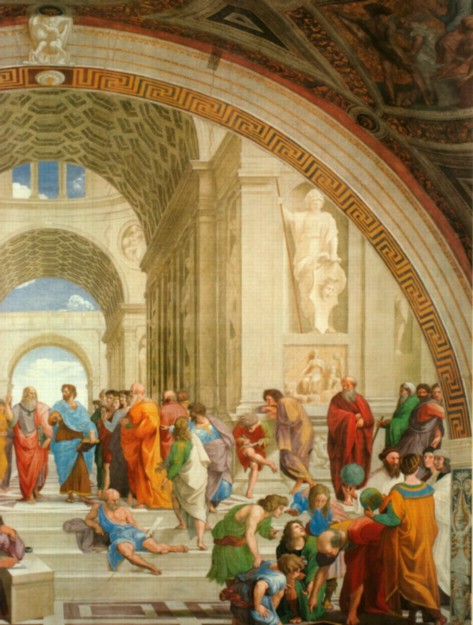There is a debate going on right now over at Sully's blog, with a discourse between an atheist, Sam Harris, who feels religion isn't so good and the practicing Catholic (who subscribes to the "theology of doubt"). In the linked post, he quotes Harris on the bible and koran, who stated:
So why not take these books less seriously still? Why not admit that theyA reader responds to this attack on his favorite holy book (who knows which one) and states:
are just books, written by fallible human beings like ourselves?
Religious books are not "just" books. Rather they are books that try to guide
human beings, and their conduct, through the mystery that is human life.
And when I say "mystery" I don't mean it in the sense of "Wow, that's
cool!" I mean it in the sense that we don't know where we came from, or
where we are going, or how, on the one hand, we can have a profound sense of
self, but, then, on the other hand, must live with the unease that our
entire sense of self - without religion - will somehow some day cease to
exist. (emphasis mine)
So if you truly believe that there is an afterlife, you get to toss off your angst. Nothing about the truth behind religion, more of "it's like prozac for me. I'm not as worried about what happens when I die when I turn my brain off and blindly believe in fairy tales."
The commenter further states:
Religion, and religious books are designed to help us with these problems of human existence. They are designed to show us - based on very old traditions - about the proper courses of conduct to lead one to the eventual pride in having lived to the full and to the good the one life that one was granted. They make us glad to be alive... Other books do not help. Even philosophers are of little use for these areas of life, and most will gladly acknowledge it. Perhaps some people don't need religion. But most of us do, even if our religious devotions are tinged with more or less worldly skepticism... For reasons we cannot put into words, we feel at times - after a Beethoven quartet or a Shakespeare play - that we have been touched by something so special, that it could not be the mere product of "just some guy." (my emphasis)
It's almost tough to know where to begin with this guy. I think the Bible is one of the best records we have of the brutality and barbarism of early man, of our tribal life. Constant warfare, slaughter, sacrifice to gods and idols, fire and brimstone, sinners in the hands of an angry god that brings fires and floods and earthquakes and plagues. That is the proper course of conduct? It's all about the smiting.
Listen, one of the greatest problems of the Islamic world is this constant yearning for the time of the Prophet, to go back to the 700s, because of the belief that everything was pure and just then, and it has been nothing but a corruption of Islam since that moment. Instead of looking ahead, they look back. There can be no progress, there can only be an eternal striving to return to the life of a warring desert and trading people, for that is the way of Mohamed and he is the purest man to ever live.
Perhaps if they did read these other books, books that the clown quoted above thinks are useless, then they would have a greater understanding of the human spirit. The great works of Hemingway, the poetry of Tennyson, the words of Bellow, the frenzy of Roth, the wise eye of Naipaul, all these books and more help man deal with the cruelties of existence, to persevere through this vale of tears. And they all help deal with the conundrum of human existence. Even the Bible can help, but the fact it is placed on a pedestal, that it's fantasies should hold mystical weight and the other books are blasphemous, this is a pernicious mindset that should be rejected. Sentiments like those quoted above lead to death sentences on the heads of writers. Just ask Salman Rushdie. And ask him if one of his masterpieces was inspired by God or though his own hard work.
We should not need some crutch to find peace of mind. We should not have to rely on thoughts of the afterlife and prayer to find comfort. We must come to terms with the fact of our mortality, and live our lives in recognition of this eventuality.
A man can spend his day on his knees in prayer, a supplicant to a silent god. He can hope that these actions will show his piety and ensure his place in the great beyond. Or, he can spend his days in good works, trying to leave the world better than he found it, to leave a legacy of accomplishment that will give him solace on his deathbed. I don't know which of these two men is right. But the one who gets off his knees is the better man in my book.

No comments:
Post a Comment